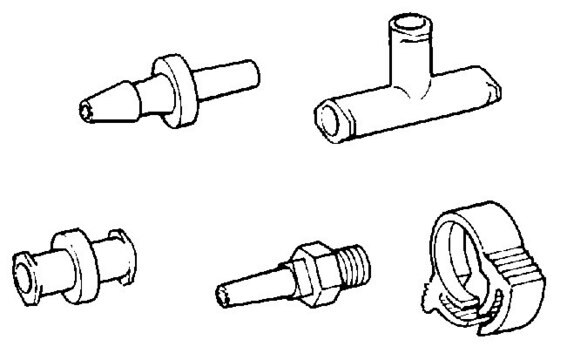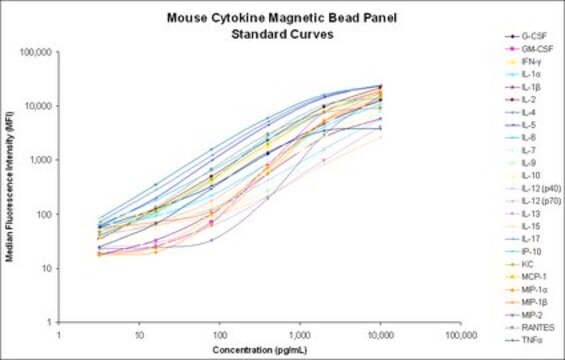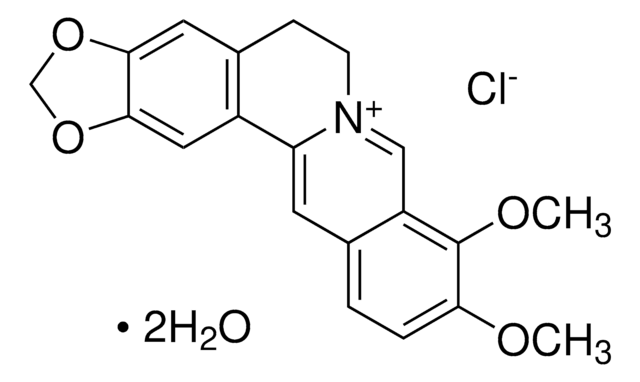1199002
USP
Digitoxin
United States Pharmacopeia (USP) Reference Standard
Synonym(s):
5β,20(22)-Cardenolide-3β,14-diol-3-(O-2,6-dideoxy-β-D-ribo-hexopyranosyl-[1→4]-O-2,6-dideoxy-β-D-ribo-hexopyranosyl-[1→4]-2,6-dideoxy-β-D-ribo-hexopyranosyl)oxy, Digitoxoside, Lanatoxin
About This Item
Recommended Products
grade
pharmaceutical primary standard
API family
digitoxin
manufacturer/tradename
USP
mp
240 °C (dec.) (lit.)
application(s)
pharmaceutical (small molecule)
format
neat
storage temp.
2-8°C
SMILES string
[H][C@@]1(C[C@H](O)[C@H](O[C@@]2([H])C[C@H](O)[C@H](O[C@@]3([H])C[C@H](O)[C@H](O)[C@@H](C)O3)[C@@H](C)O2)[C@@H](C)O1)O[C@H]4CC[C@@]5(C)[C@]([H])(CC[C@]6([H])[C@]5([H])CC[C@]7(C)[C@]([H])(CC[C@]67O)C8=CC(=O)OC8)C4
InChI
1S/C41H64O13/c1-20-36(46)29(42)16-34(49-20)53-38-22(3)51-35(18-31(38)44)54-37-21(2)50-33(17-30(37)43)52-25-8-11-39(4)24(15-25)6-7-28-27(39)9-12-40(5)26(10-13-41(28,40)47)23-14-32(45)48-19-23/h14,20-22,24-31,33-38,42-44,46-47H,6-13,15-19H2,1-5H3/t20-,21-,22-,24-,25+,26-,27+,28-,29+,30+,31+,33+,34+,35+,36-,37-,38-,39+,40-,41+/m1/s1
InChI key
WDJUZGPOPHTGOT-XUDUSOBPSA-N
Gene Information
human ... ATP1A1(476) , ATP1A2(477) , ATP1A3(478) , ATP1A4(480) , ATP1B1(481) , ATP1B2(482) , ATP1B3(483) , FXYD2(486)
Looking for similar products? Visit Product Comparison Guide
General description
Application
- Digitoxin Injection
- Digitoxin Tablets
- Digoxin
Analysis Note
Other Notes
Signal Word
Danger
Hazard Statements
Precautionary Statements
Hazard Classifications
Acute Tox. 2 Oral - Acute Tox. 3 Inhalation - STOT RE 2
Storage Class Code
6.1A - Combustible acute toxic Cat. 1 and 2 / very toxic hazardous materials
WGK
WGK 3
Choose from one of the most recent versions:
Certificates of Analysis (COA)
It looks like we've run into a problem, but you can still download Certificates of Analysis from our Documents section.
If you need assistance, please contact Customer Support.
Already Own This Product?
Find documentation for the products that you have recently purchased in the Document Library.
Customers Also Viewed
Our team of scientists has experience in all areas of research including Life Science, Material Science, Chemical Synthesis, Chromatography, Analytical and many others.
Contact Technical Service








